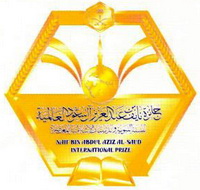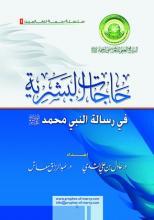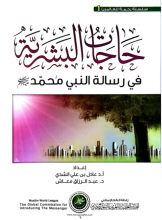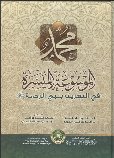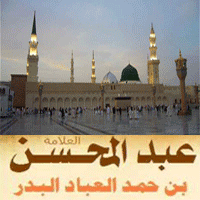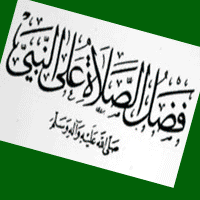The Mission
Yathrib had been chosen by Allah to shelter the Messenger of God (peace be upon him) after his migration and to bring forth not only the first Islamic Society but also to serve as a focal point for the universal call of Islam. The great honor accorded to the city makes it necessary to know its distinctive features. Such as its physical, social and cultural conditions, the Arab tribes living there and their mutual relations, the economic and political manipulations of the Jews and their fighting spirit as well as the way of life sustained by its fertile land.
Madinah was a veritable oasis. The soil warranted a systematic cultivation and hence, its population was given over to farming and gardening. The main produce of the city consisted of grapes and dates, of which there were numerous groves,(14) trellised and untrellised. Two or more palm-trees occasionally grew out of a single root. (See Quran 141 and 13:4)
There was no room for deception and double dealing in Makkah. (41) Islam was helpless, harried and harassed there. Moreover, none had the power to turn the tide in Makkah, nor could anyone think of gaining any advantage by accepting Islam. Giving ones faith to Islam meant one was prepared to set the whole of Makkah at defiance and to risk ones life.
The peaceful conditions following the Treaty naturally gave a boost to the missionary activities which kept on advancing day-by-day. Islam grew like an avalanche and showed the signs of assuming vast proportions. The Apostle then sent several letters to the rulers outside Arabia and the tribal chiefs (1) within the country inviting them to accept Islam. The letters were not couched judiciously by the Apostle but he also took care to select the envoys of different kings keeping in view the station and dignity of the different potentates.
The Prophet (peace be upon him) also sent letters to Mundhir b. Sawa, ruler of Bahrain; (52) Jayfar b. al-Julanda, and Abd b. al-Julanda (53) Azdi, rulers of Oman; Haudha b. Ali, the ruler of al-Yamama (54) and Harith b. Shammar al-Ghassan. Mundhir b. Sawa and the two sons of al-Julanda, Jayfar and Abd embraced Islam. Haudha b. Ali wrote back to say that he would accept Islam provided he was allowed to share the dominion with Muslims. The Prophet (peace be upon him) turned down his request and he died soon thereafter.
LETTERS TO MONARCH
Heraclius, Negus and Muqauqis received the letter from the Apostle with all due respect that each gave a courteous reply. Negus and Muqauqis showed the highest regard to the envoys. Chosroes II was indignant, he tore the letter into pieces, saying, "My slave dares to write me thus "! When his reply was conveyed to the Prophet, he said, "even so shall God shatter his kingdom to pieces." (Tabari, Vol. III, pp. 90-91) Choroes II wrote to Badhan, who was his governor in Yemen, to get the Apostle sent to him in Ctesiphon.
The Muslims gradually amassed power and became strong enough to fight against their enemies. They were first told to resist aggression and then later on permitted to fight against the mischievous ones. But it was only a permission rather than an obligation to take-up arms against the enemies. (See Zad al-aad, Vol. I, p. 314)
Sanction is given unto those who fight because they have been wronged; and Allah is indeed able to give them victory.
[Qur'aan 22:39]
EXPEDITION OF ABWA AND ABDULLAH B. JAHSH
And Allah repulsed the disbelievers in their wrath; they gained no good. Allah averted their back from the believers. Allah is strong, Mighty.
[Qur'aan 33:25]
(For more details of the Battle of Trenches Click Here)
ACTION AGAINST BANI QURAYDA
The reason for this battle was the braking of Bani Qurayda for their word they have given to the Prophet and giving-up their commitment in order to help the Quraysh.
i - Mercy for Slaves
The Noble Prophet was particularly kind to slaves. He used to say, "They are your brothers; give them to eat what you eat, and give them to wear what you wear." Whenever he received any slaves, he always gave them freedom but they could never free themselves from his kindness and generosity. They left their parents, relatives and families and regarded it as an honour to live in bondage to him.
ii - Mercy for Women
Prophet Muhammad (PBUH) was also very kind and affectionate towards women. Women were very badly treated in those times. The Noble Prophet gave them honour and dignity at par with men in the community. Omar reported, "We did not have much regard for women, while we were at Makkah, but they were better treated in Madinah. Allah's Messenger established women’s rights through his sayings and commandments, which improved their position and status.”
